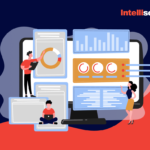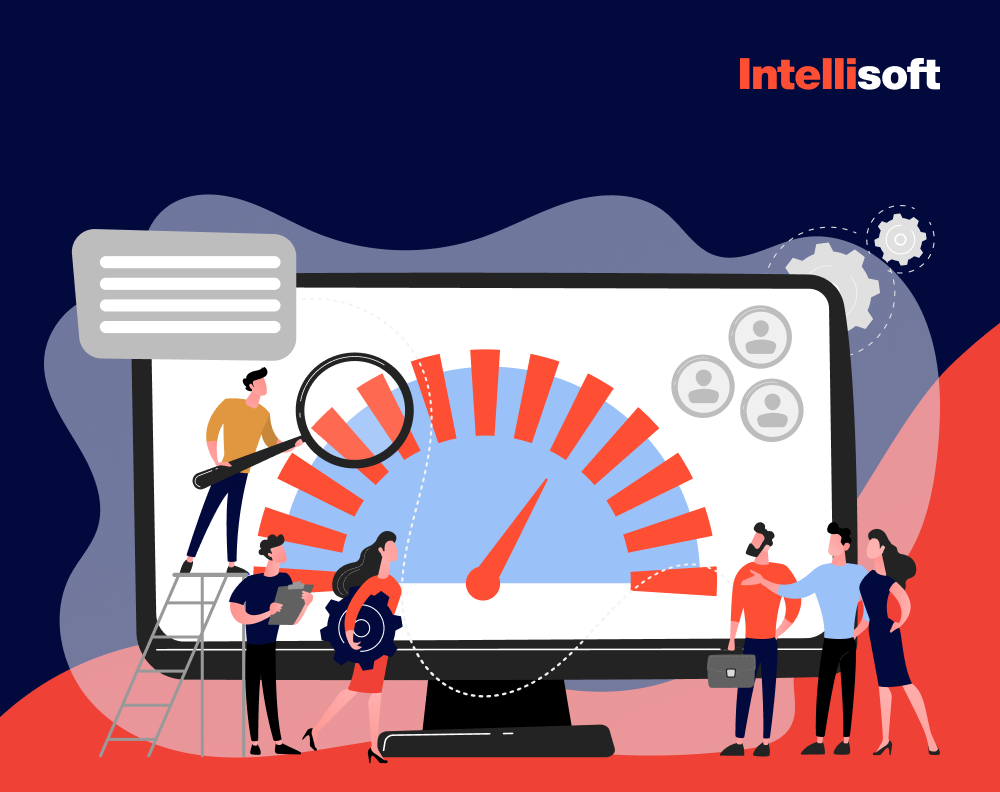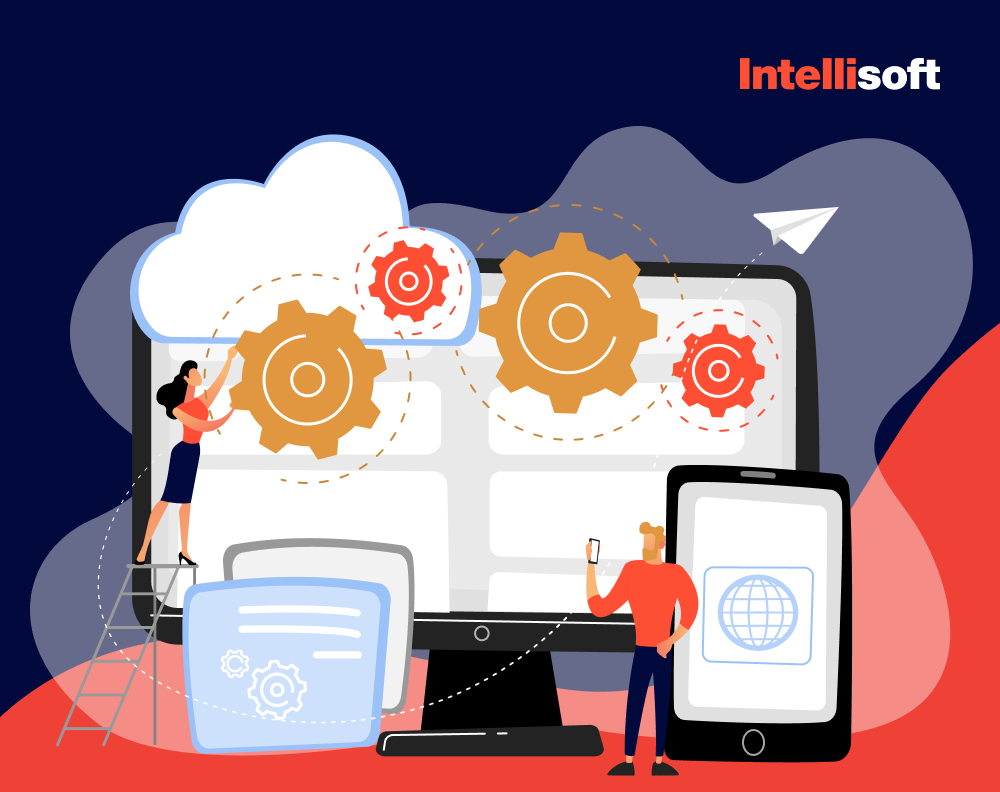Excelling as an engineering manager means mastering the art of prioritization, mentorship, and risk management. How can you show that you are the ideal candidate for this position? And if you’re a technical recruiter, what should you look for to ensure you’re assessing all the crucial elements? What questions for engineering manager interview should you ask?
This article explores the engineering manager interview questions often asked in interviews. These questions are crafted to uncover candidates who not only fit a company’s culture but also bring their distinctive management approaches to the table.
By the end, you’ll know exactly what qualities to prioritize when hiring your next exceptional engineering manager.
Table of Contents
Responsibilities of an Engineering Manager
Before hiring an engineering manager, it’s essential to understand their full range of responsibilities. This understanding will help you devise effective software engineering manager interview questions and accurately assess the candidates’ responses.
According to Rice University, an engineering manager’s key responsibilities include:
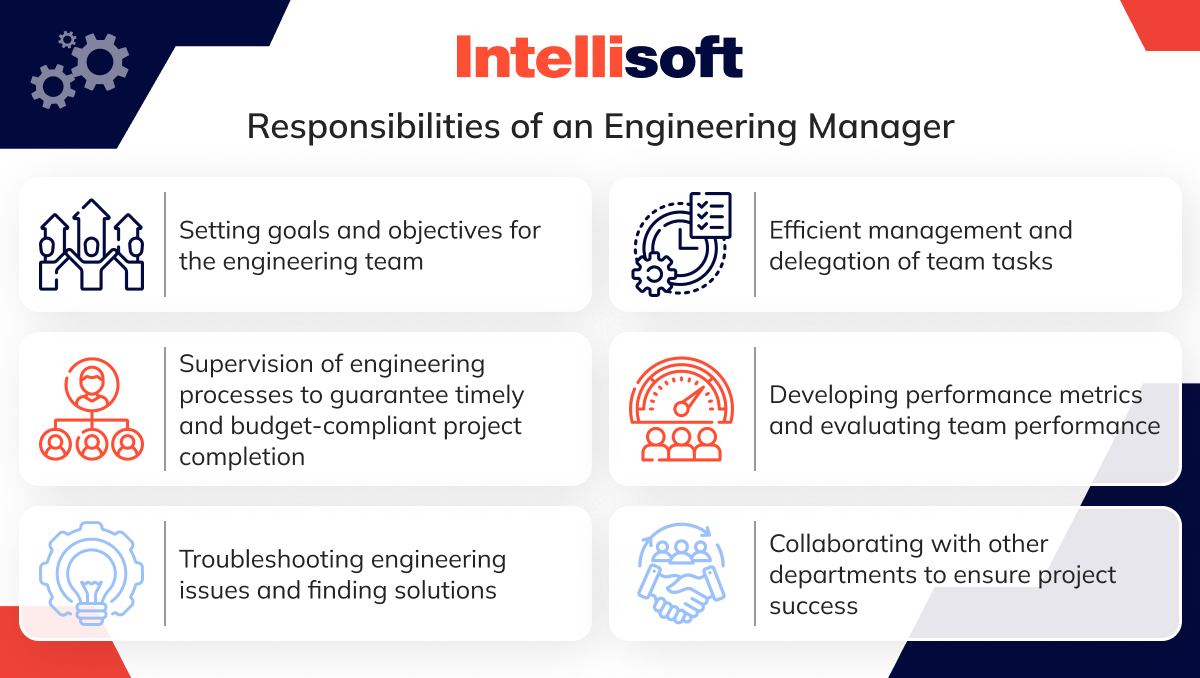
- Setting goals and objectives for the engineering team
- Efficient management and delegation of team tasks
- Supervision of engineering processes to guarantee timely and budget-compliant project completion
- Developing performance metrics and evaluating team performance
- Troubleshooting engineering issues and finding solutions
- Collaborating with other departments to ensure project success
In the following sections, we’ll review the engineering manager interview questions and answers you can hear from the recruiter.
Common Software Engineering Interview Questions
When gearing up for a software engineering interview, you should be well-prepared for a range of engineering manager interview questions. Expect to encounter topics like data structures, algorithms, system design, programming languages, and various problem-solving scenarios.
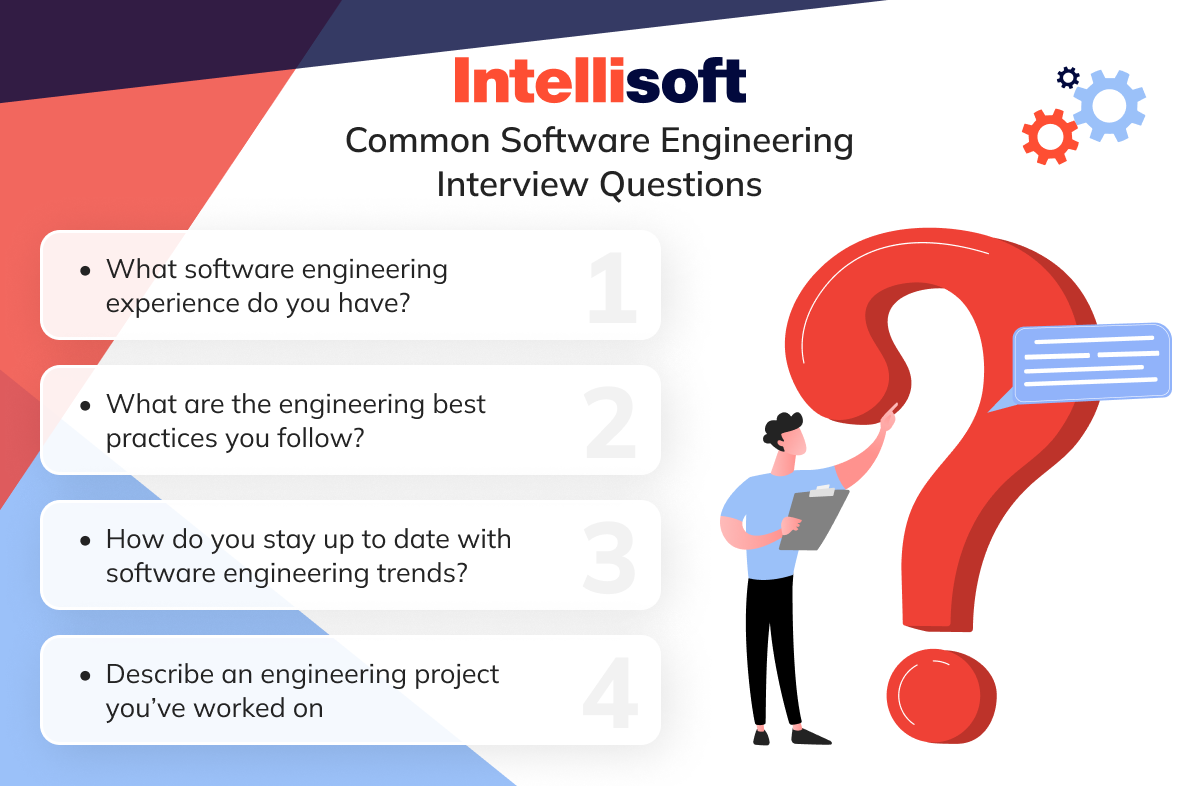
What software engineering experience do you have?
Candidates should provide detailed information about their software engineering background, including specific projects, skill set, and proficiency in tools and technologies.
Sample answer: “Throughout my 10+ years in software engineering, I have gained extensive experience in designing, developing, and deploying a wide array of projects across various industries. My proficiency extends to C++, Java, HTML, and CSS. Moreover, I am adept at utilizing various tools and technologies, including Git for version control and Jira for project management and issue tracking.”
What are the engineering best practices you follow?
Discuss your core engineering principles, such as scalability, maintainability, and reusability. Stress your commitment to writing clean, efficient code and using automation to boost productivity and cut costs.
Example Response: “I consistently apply best practices focused on scalability, maintainability, and reusability. I prioritize clean, well-structured code and leverage automation to streamline processes, saving time and reducing expenses.”
How do you stay up to date with software engineering trends?
Describe how you keep abreast with industry trends. Mention the resources you use, like blogs, conferences, magazines, and podcasts. Also, highlight your networking efforts on platforms like LinkedIn and your participation in meetups.
Example Response: “To stay current in software engineering, I regularly read industry blogs, attend major conferences, and subscribe to top magazines. I also network on LinkedIn and engage in specialized meetups, which are vital for my professional growth.”
Describe an engineering project you’ve worked on
Provide a detailed summary of a major project you have contributed to. Describe the primary objectives of the project, outline your specific responsibilities, discuss the challenges and obstacles you encountered, and explain the strategies and actions you employed to overcome these challenges and successfully meet the project’s goals.
Example Response: “Recently, I was the team lead while developing a new software system for a client. My responsibilities included team leadership, project planning, and resource management. Despite a tight deadline and budget constraints, my strategic approach ensured we met our key objectives and delivered the project successfully.”
All these interview questions engineering manager are the most common yet valuable to create the initial profile of the candidate.
Related articles:
- Software Architect vs Software Engineer: Core Differences
- How to Hire Dedicated Developers and Revolutionize Your Workflow
- Data Engineer Roles and Responsibilities: A Brief Explainer
- How to Hire a Software Developer: Tips and Tricks
- IT Talent Sourcing in Ukraine: Best Hiring Strategies
Engineering Manager Technical Interview Questions
Let’s review the list of engineering manager interview questions that you can hear in an Engineering Manager technical interview.
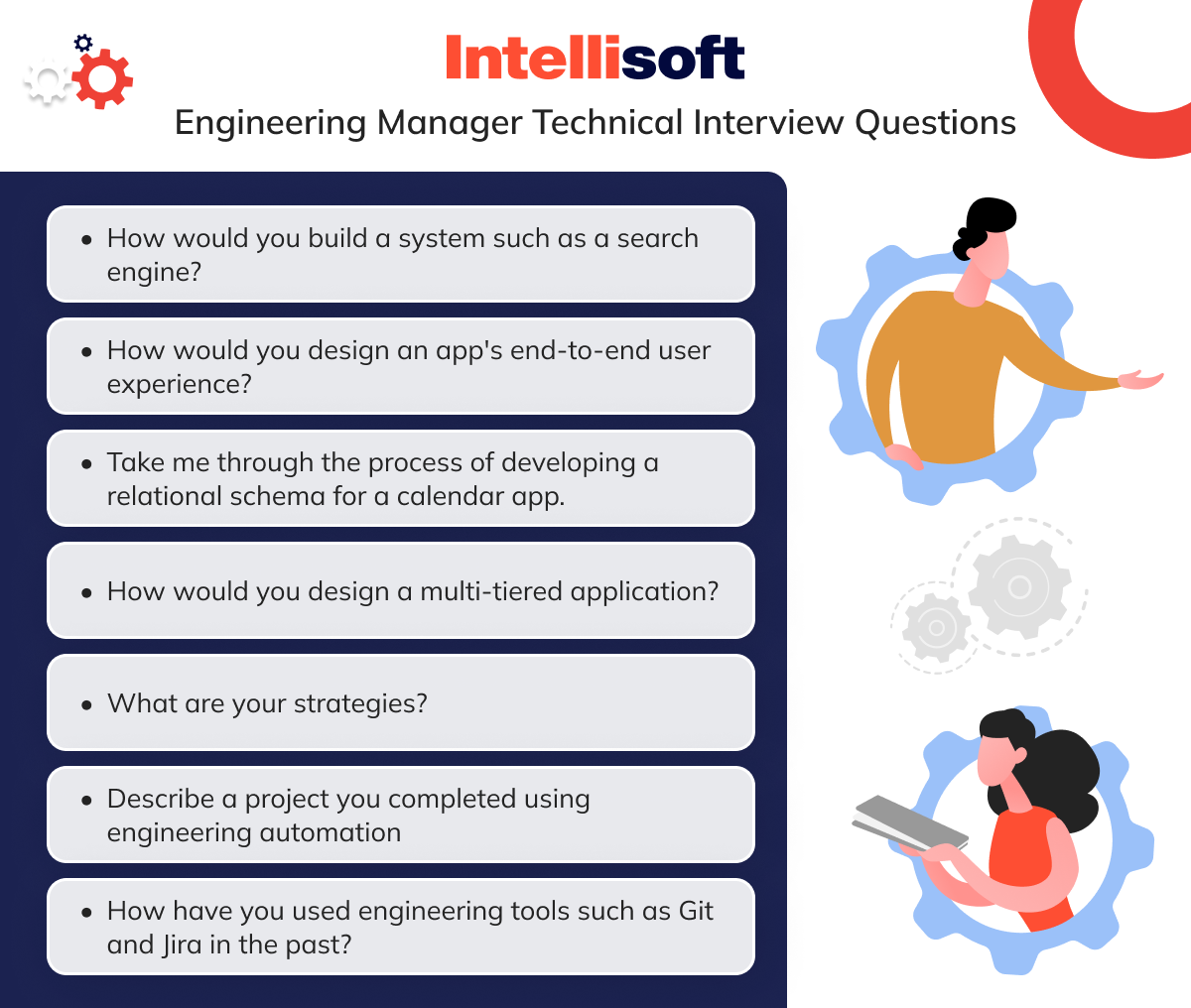
How would you build a system such as a search engine?
The candidate must explain their approach to designing, developing, and implementing the system.
Sample answer: “When building a search engine, I’d start by establishing a scalable architecture. This means selecting appropriate backend technologies, like Python for scripting and Elasticsearch for its search capabilities. For the frontend, I would employ HTML, CSS, and JavaScript to create a responsive user interface. The core tasks would involve programming crawlers to gather data and creating algorithms to index and rank web pages. I’d deploy the search engine on a reliable server and conduct extensive testing to debug and optimize its performance.”
How would you design an app’s end-to-end user experience?
The engineering manager should outline the engineering process for app development and discuss relevant engineering principles.
Sample answer: “To design an app’s user experience from end to end, I would begin with thorough user research to understand the target audience and their needs. This research would inform the creation of detailed user personas. Next, I would develop user journey maps and wireframes to define the app’s layout and functionality. Using prototyping tools, I’d visualize the interaction design. During development, I would ensure the integration of the user interface with the backend, focusing on responsiveness and accessibility. Finally, rigorous usability testing would refine the app before its official launch.”
Take me through the process of developing a relational schema for a calendar app.
The ideal candidate should demonstrate a deep knowledge of fundamental engineering principles, especially database normalization techniques. Additionally, they should possess demonstrated proficiency in utilizing technical tools, specifically SQL, showcasing their ability to effectively manage and manipulate databases.
Sample answer: “Creating a relational schema for a calendar app starts with a comprehensive analysis of its functional requirements. I would use entity-relationship diagrams to map out key components like events, users, and notifications, clearly defining their relationships. Then, I’d implement the schema using SQL to create tables that reflect these entities and relationships. A crucial step in this process is database normalization to eliminate redundancy and ensure data integrity, thereby optimizing the schema for efficient querying.”
How would you design a multi-tiered application?
The engineering manager should engage in discussions pertaining to fundamental engineering concepts, including the various layers and architectural frameworks involved in the engineering processes.
Sample answer: “Designing a multi-tiered application involves separating the data handling, business logic, and user interface layers to enhance scalability and maintainability. I would start by drafting the architecture and identifying the components for each layer. For example, the data layer would manage database interactions, the business layer would handle business rules, and the presentation layer would focus on user interaction. Each layer’s components would be detailed in class diagrams, and the development would closely follow this architecture. Integration testing would ensure all layers work together seamlessly.”
What are your strategies?
The candidate should offer a comprehensive explanation of the various engineering tools and techniques they use to detect and fix software bugs.
Sample answer: “My debugging strategies involve using a combination of tools and methodologies to locate and resolve issues efficiently. I rely on debuggers to step through code and inspect variables, and I use logs to monitor runtime behavior. Profilers help identify performance bottlenecks. Methodically, I adopt a divide-and-conquer approach to isolate problematic code.”
Describe a project you completed using engineering automation
The engineering manager should engage in detailed discussions on critical engineering concepts, focusing on the importance and implementation of automation strategies. They should also demonstrate a deep understanding of essential tools such Jenkins, illustrating how these tools can be leveraged to enhance development processes and operational efficiency.
Sample answer: “In a recent project, I used Jenkins to automate our CI/CD pipeline, facilitating continuous integration of code changes and streamlined deployments. I set up Jenkins to trigger automated builds and tests whenever changes were committed to our Git repository. This automation extended to deploying stable builds to production, significantly reducing manual efforts and the potential for human error, thus enhancing the project’s efficiency and reliability.”
How have you used engineering tools such as Git and Jira in the past?
The candidate should explain their use of these tools in projects to manage resources, optimize engineering processes, and ensure project success.
Sample answer: “In my past projects, Git and Jira have been essential in streamlining workflows and enhancing team collaboration. Git provided efficient version control, enabling us to manage changes and track development history. Jira was invaluable for managing the project’s lifecycle, from planning and tracking sprints to prioritizing tasks and bugs. Integrating these tools helped maintain a clear roadmap, manage resources effectively, and ensure transparency throughout the project lifecycle.”
Using the following interview questions for an engineering manager, recruiters can assess the tech skills of candidates and come up with a short list of the best options for your position.
Technical Leadership Interview Questions
These software engineering manager interview questions are designed to evaluate the candidate’s depth of leadership skills within an engineering context. They aim to gauge the applicant’s experience in managing and guiding engineering teams, highlighting their ability to oversee complex projects and drive team success.
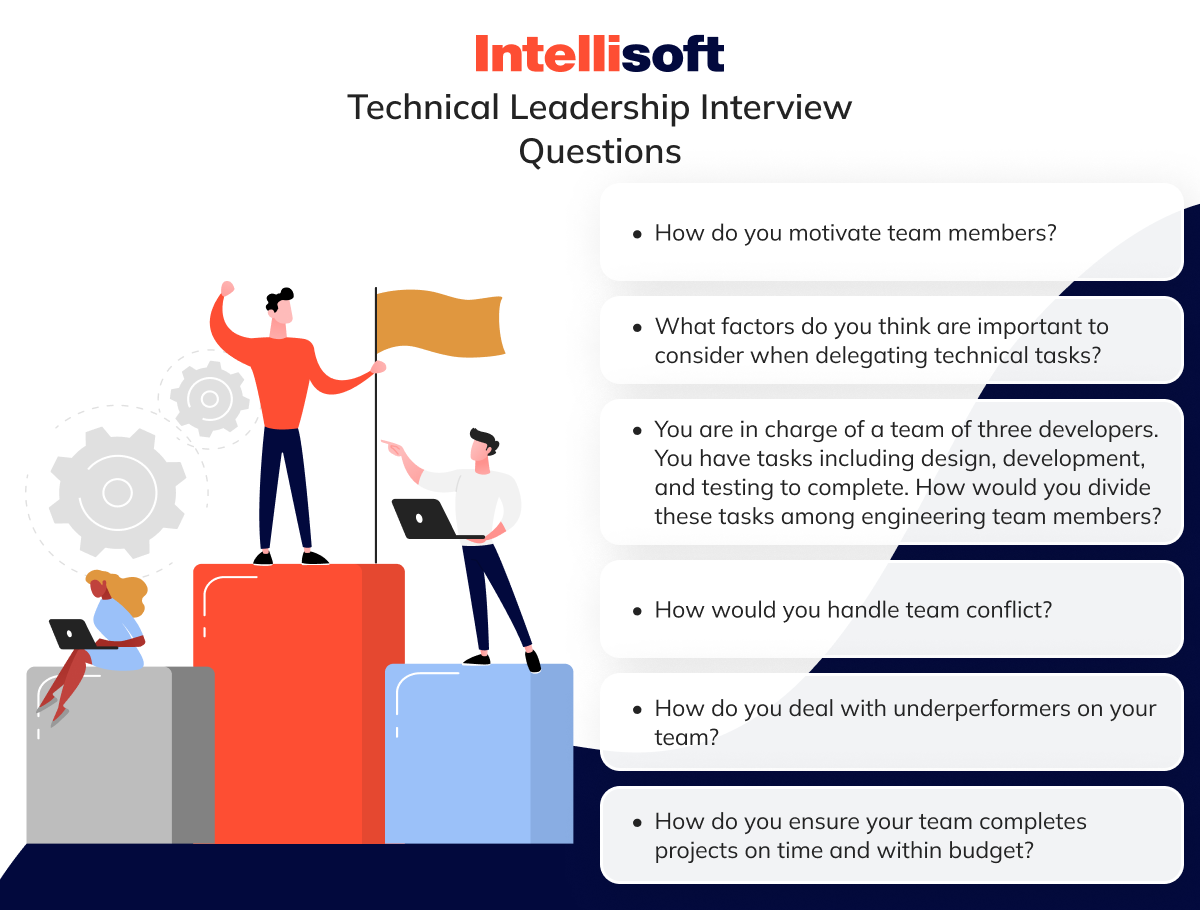
How do you motivate team members?
The candidate should articulate their motivational strategies, challenges encountered, and solutions to overcome those challenges.
Sample answer: “To motivate my engineering team, I focus on providing clear instructions and setting achievable goals. Recognizing their accomplishments is crucial, as it boosts morale and motivation. I’ll ensure they have all the resources needed to complete their projects efficiently. When we encounter obstacles, I work closely with the team to brainstorm and implement effective solutions, fostering a collaborative environment.”
What factors do you think are important to consider when delegating technical tasks?
The candidate should provide detailed insights into engineering processes such as task prioritization, team communication, and resource management.
Sample answer: “When delegating tasks, it’s crucial to consider the team’s skills and available resources. I prioritize tasks according to project deadlines and make sure the team has everything they need to complete their work. Keeping everyone informed about project progress and team goals is also essential.”
You are in charge of a team of three developers. You have tasks including design, development, and testing to complete. How would you divide these tasks among engineering team members?
The discussion with the engineering manager should focus on principles of task delegation and team collaboration.
Sample answer: “At the beginning of a project, I meticulously review the specifications and break down the responsibilities into manageable tasks. I then assign these tasks to team members according to their strengths and expertise, making sure everyone has a balanced workload. Clear goals are set for each person, giving them a precise direction to follow. Throughout the project, I cultivate a collaborative atmosphere where team members feel encouraged to work together and share their insights. Using this method, I can ensure that tasks are completed efficiently, on schedule, and within the budget.”
How would you handle team conflict?
The manager should detail their approach to conflict resolution, including their communication and problem-solving strategies.
Sample answer: “I address team conflicts by listening actively and understanding different viewpoints. I focus on finding constructive solutions that resolve the issues at hand. My experience in conflict resolution helps me address problems professionally and promptly, ensuring that team harmony is maintained.”
How do you deal with underperformers on your team?
An effective engineering manager should possess the keen ability to discern which team members are underperforming and proactively address their performance issues. They must also be adept at articulating their methods for identifying these performance gaps, drawing on specific examples and experiences. Additionally, the manager should be able to discuss their comprehensive experience with managing team performance, including strategies they have implemented to enhance productivity and drive team success.
Sample answer: “To effectively manage underperformance, I meticulously track project timelines, closely observe team dynamics, and analyze detailed performance metrics. When I notice a team member falling short of expectations, I initiate a constructive dialogue to uncover the underlying reasons for their struggles. By grasping these issues, I can offer customized resources and support crucial for their enhancement.”
How do you ensure your team completes projects on time and within budget?
Discussion should involve engineering processes like project planning, team management, and performance tracking.
Sample answer: “I ensure projects are completed on time and within budget by developing detailed project plans, assigning tasks effectively, and setting clear performance indicators. Keeping the team well-informed and well-resourced is essential. Regular monitoring of project progress allows me to address any issues quickly and celebrate milestones as they are achieved.”
These interview questions for software engineering manager are critical for assessing the leadership capabilities required to enter the future position.
Hire Engineering Managers With IntelliSoft
Hiring an engineering manager means finding someone with both the technical know-how and leadership capabilities crucial for the role. While these engineering manager interview questions are just a starting point for your interview process, they offer a glimpse into the kind of skills and expertise you should be looking for in a candidate. It’s important to tailor your interview questions for engineering manager to suit the specific software engineering needs of your company.
IntelliSoft is here to help you find the ideal engineering managers for your team. As a premier outsourcing talent provider, we excel at connecting you with highly qualified candidates who have the right experience and expertise. We also ensure that the professionals we recommend are in sync with your company’s culture and values.
Contact us today to hire the best engineering managers for your needs.
